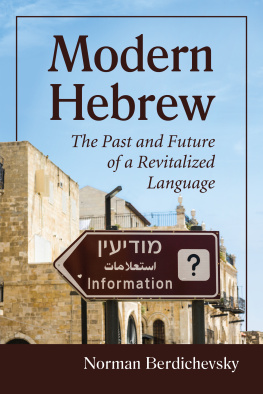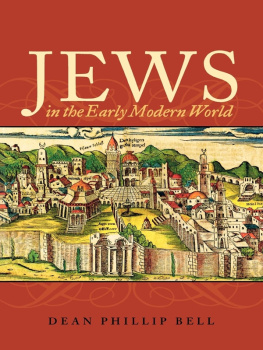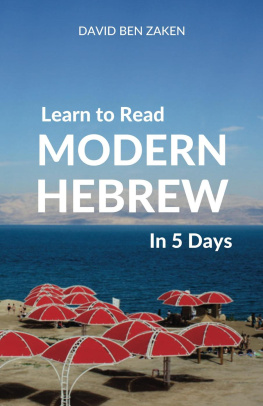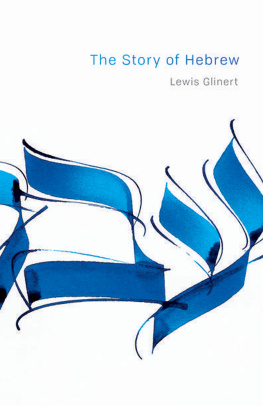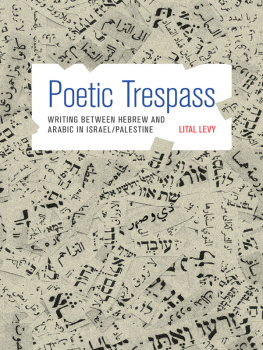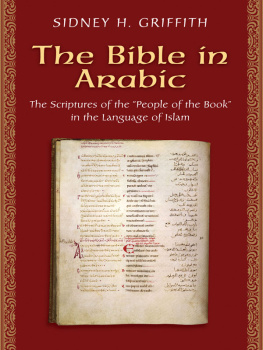Also by NORMAN BERDICHEVSKY
AND FROM MCFARLAND
An Introduction to Danish Culture (2011)
Nations, Language and Citizenship (2004)
LIBRARY OF CONGRESS CATALOGUING DATA ARE AVAILABLE
BRITISH LIBRARY CATALOGUING DATA ARE AVAILABLE
e-ISBN: 978-1-4766-2629-1
2014 Norman Berdichevsky. All rights reserved
No part of this book may be reproduced or transmitted in any form or by any means, electronic or mechanical, including photocopying or recording, or by any information storage and retrieval system, without permission in writing from the publisher.
Front cover: information sign in three languages (gkuna/iStock/Thinkstock)
McFarland & Company, Inc., Publishers
Box 611, Jefferson, North Carolina 28640
www.mcfarlandpub.com
The Danish philosopher Andreas Simonsen remarked on the great respect most Jews feel for the past, old friends and their parents, as well as the long historical memory of nationhood and the many religious obligations and commemorative holidays. This is what he termed The Jewish ability to carry their past with themselves and be nourished by it. The better people remember their past and are able to integrate it with their appreciation of life, the better they are able to develop their intellect, humanity and vitality. It is the best definition of Zionism and explains the success of Modern Hebrew, a desk project initiated in 1880 by a few fanatics to turn what once had been an almost purely liturgical language like Latin, one that was nobodys mother tongue, into the vernacular of millions and the medium of a dynamic innovative society in the State of Israel, confounding all the forecasts of so-called experts. This book is dedicated to the many farsighted individuals who exercised an enormous intellectual effort to make Modern Hebrew live in the fields of journalism, literature, poetry, teaching, academic research and popular song, and who, in so doing, gave hope, pride and inspiration to Jews in their darkest hour of a bright future among the nations of the world.
Acknowledgments
My love of the Hebrew language is due in large part to the inspiration of my parents, teachers, mentors, colleagues and the people of Israel in the cities, academies, moshavim, kibbutzim and marketplaces of the country. I specifically owe a debt of gratitude to my wife Raquel, who again helped me with sound advice and counsel; to a former student of mine, John Janda, a proud son of the Czech nation, to academic colleagues in Israel, the United Kingdom and United States, Erich Isaac, Yehoshua Ben-Arieh, Amiram Gonen, Mrs. Orna Szpiro, Colin Shindler, Ken Hanson, Moshe Pelli; to the distinguished translators, Hillel Halkin, Risa Domb and Nicholas de Lange; to former comrades in the kibbutzim, Sasa and Barkai; to my relatives in Israel; and to the inspiration provided by three generations of masterful performers of Hebrew song.
Note to the Reader
Words reflecting concepts that are related in Hebrew often look alike, meaning that they have the same root consonant letters, and sound alike. Such words have been bolded throughout the text to emphasize their similarity. The first such instance appears on page 13: Re-e-M = womb and Ra--Ma-nut = mercy. Womb and mercy were obviously allied concepts in the minds of the ancient Hebrewsthe womb protects the fetus in a merciful way from harm.
Also of note is that the symbol represents the Hebrew letter et and represents the Hebrew letter shin
Preface
Few subjects have commanded the attention and provoked, fascinated, excited, and enchanted so many readers like the saga of the Zionist rebirth of Israel. Yet in this monumental literature, relatively little space has been devoted to the epic transformation of the classical language of the Bible into modern Ivrit, the national language of the dynamic State of Israel, its everyday vernacular spoken by seven million people. It was grafted successfully onto an older literature and longer historical continuity than Latin or Greek and is the official language of Israeli business, research, the law, and government.
For those with no previous knowledge of the language and those who may be superficially familiar with the Hebrew used in traditional prayer services at the synagogue or celebrations of festivals but little else, the momentous story of the trial and tribulations, growth and maturity, of Israels national language remains an arcane subject. Words like Sabbath, Amen, Satan, Hallelujah and Hosanna have been incorporated into almost all the worlds languages without any translation by any other term, a fact generally recognized by most Christians, but few of them are aware that the modern Hebrew language has for most of the past century been regarded as dangerous and the subject of active persecution. Three generations of Hebrew teachers and students risked imprisonment, social ostracism, financial ruin and the loss of their livelihoods in the Soviet Union for carrying on the underground movement to learn the language (see Chapter 11)something that is either unknown or taken for granted by many Diaspora Jews who most commonly associate Hebrew with a tedious preparation for their bar mitzvah confirmation.
This book explores the historical background, past and current controversies, challenges, dilemmas and prospects facing the Israeli people that stem from the choice made four generations ago, dating from 1880, to create a renewed nation of Jews in the Land of Israel with Hebrew as their national language. It is a study in the politics, linguistics and sociology of language, exploring the relationship of the Israelis with the Jewish Diaspora as well as with their fellow nonJewish citizens, the largely bilingual Arabic- and Hebrew-speaking Arab population.
I lived in Israel for many years and taught Hebrew at all levels in both the United States and the United Kingdom. It has long been my wish to write an accompanying book to be used as an overall introduction to the importance of Modern Hebrew and acquaint beginning students with the social and political role the language has played in the history of Zionism and the State of Israel.
The book examines some of the basic mechanics of the language, including the many changes that have occurred in the transition to Modern Hebrew. It also explores how this language overcame many obstacles to become a spoken vernacular, along with its growing prestige. It is a book dealing primarily with the social aspects of the language to acquaint new students, both Jewish and Gentile, with the role model Modern Hebrew played for other national revivals. It does not cover literature, nor is it another biography of the pioneer founder of the movement to make Hebrew into a modern spoken language, Eliezer Ben-Yehuda. It is rather the story of his vision and how it animated a large part of the Jewish world, gave new confidence and pride to Jewish youth during the most difficult period of modern history (on the eve of the Holocaust), and infused Zionism with a dynamic cultural content.
Over the past two generations, there has been a steady decline among many American Jews in the cultural and emotional identification they feel with Modern Hebrew literature, song and dance, elements that once drew them close to the Zionist project and the emergence of a modern national Israeli culture.
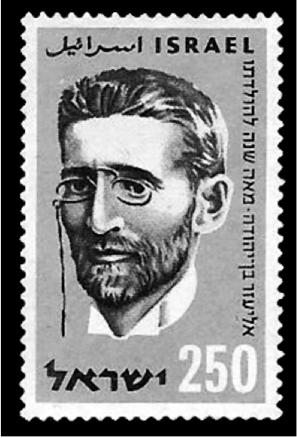
Eliezer Ben-Yehuda postage stamp honoring the father of Modern Hebrew.
The lack of a common language is an obvious but overlooked factor in explaining why so many American Jews are insensitive to or unappreciative of the creation of a modern nation, national literature and spoken idiom that makes Modern Hebrew quite distinct from the language of ritual prayers recited in the synagogue. Many tourists in Israel miss out on much that is not available in instant translations. All laws, debates in the Knesset, the legal cases in court, and applications for patents are, of course, in Hebrew, but in both a literal and figurative sense, Israelis and Jews abroad dont speak the same language. Israeli affairs portrayed by the media in the Diaspora are often based on highly fragmentary and specially selected extracts of published material translated (and occasionally mistranslated) from Hebrew.
Next page
